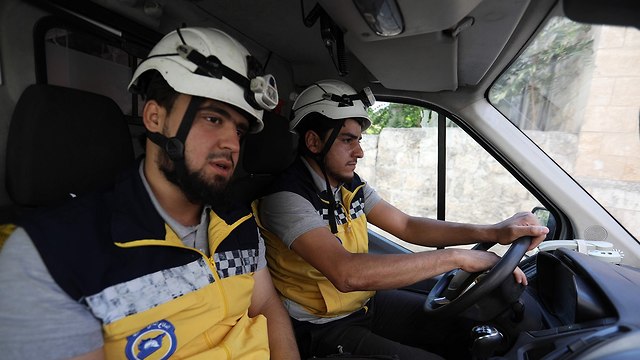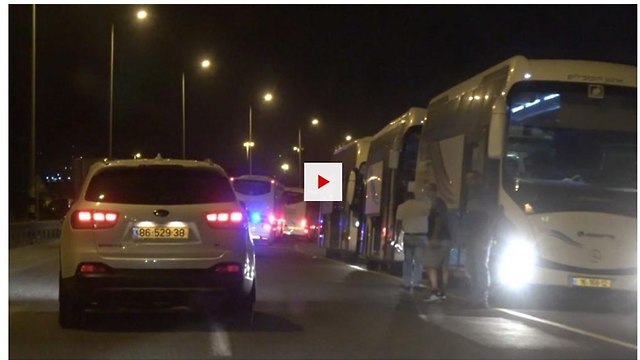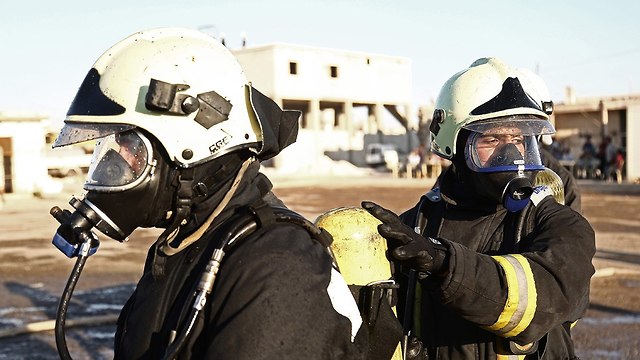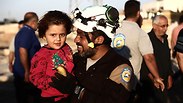
A member of the White Helmets holds a little girl near Aleppo
צילום: AFP
Rescuing the rescuers: Syrian White Helmet builds new life in UK
With the help of Western powers and Israeli soldiers, Amer was among hundreds of White Helmets evacuated last July from southwest Syria, and now he is adjusting to the sights and sounds of normal life he has not heard for eight years.
It was the sound of children chatting on their way to school that startled Amer on his first morning in England.
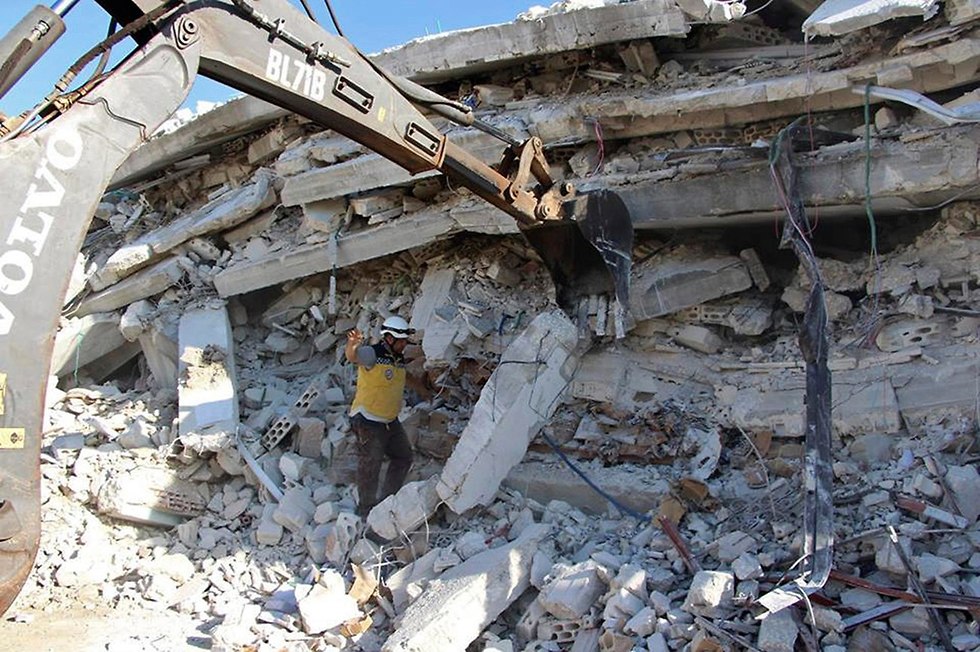
For the past eight years, the 30-year-old Syrian, one of the White Helmets rescue workers, had grown more accustomed to seeing children trapped under rubble after a government airstrike than peacefully walking to school with friends.
Even switching on lights in his home has been a novelty for Amer, who did not have access to reliable power since the war began in 2011. The conflict has killed hundreds of thousands and displaced about half of Syria's pre-war 22 million population.
"The day I arrived in Britain, I put my head on a pillow to sleep, and in the morning I was woken up by the sound of children outside," said Amer, who did not reveal his full name or location for fear of reprisals.
"So I peeked out the window and I could see mothers dropping their children off at school - and that's just not something I've seen in eight years," he said from his home in northeastern England where he has lived since September.
With the help of Western powers and Israeli soldiers, Amer was among hundreds of White Helmets evacuated last July from southwest Syria to Jordan, during a government offensive.
The White Helmets, known officially as Syria Civil Defense, was established as a rescue service in rebel-held areas of Syria, where its civilian volunteers have often worked to save people trapped under the rubble of government bombardment.
Its members, known for their white helmets, say they are neutral. But Syrian President Bashar Assad and his backers, including Russia, have dismissed them as Western-sponsored propaganda tools and proxies of Islamist-led insurgents.
It was all gone
Amer said he joined the service in the southern province of Deraa because of a sense of duty and to prevent other civilians - who had not been trained like the White Helmets - from getting hurt attempting to save people from the rubble."It was a complete reflex. As soon as there was a call for rescue, you pile into your car, you go and you take care of that mission," he said in Arabic through an interpreter.
"Regardless of all the chaos, just seeing the face of someone you were rescuing makes you forget everything - all your pain, all your exhaustion. You're just in the moment of saving someone," he said.
Seeing two friends killed in an airstrike during the early years of the conflict, and feeling completely helpless as dozens died from severe bleeding, galvanised Amer's decision.

A member of the White Helmets searching for people in the ruins of a building (Photo: AP) (צילום: AP)
But being part of the White Helmets over the years has made him a prime target of the government, Amer said, and he had no choice but to flee.
As he stood on a hill overlooking Deraa, during his final days in Syria last year, the former student felt an overwhelming sense of loss and grief for his country.
"I could see refugee camps that would have housed activists, doctors, volunteers, all kinds of people, and I wondered what would happen to them," Amer said.
"The feeling of being forced to leave your country when you don't want to go is indescribable. I felt like everything was lost and that it was all gone."
A new life
Britain has resettled about 100 White Helmets and their families since September, as part of the evacuation plan from Jordan that was coordinated with Germany and Canada.
"Our priority now is to help make sure that they can rebuild their lives safely here in the UK," Britain's immigration minister Caroline Nokes told the Thomson Reuters Foundation in emailed comments.
The Syria Campaign, an advocacy group supporting the White Helmets, said the volunteers faced immense challenges as they try to rebuild their lives.
"The White Helmets volunteers have witnessed the unthinkable massacres of innocent people, dead children, the victims of chemical weapons attacks," said its spokeswoman Mirren Gidda.
"The psychological impact of that is huge. These are tremendously brave people with so much to contribute, it's so important they are made to feel welcome and valued."
Though Amer is learning English and grateful to be in Britain, he said it has been difficult adjusting to a new culture and lifestyle.
Yet that has not stopped him from doing what he does best: saving lives, and has signed up as a volunteer with the local fire service to help people fireproof their homes.
"I will be delivering my first awareness training session to an Iraqi family that has just been resettled here," he said, beaming as he showed photos of his time with the fire service, who knew of the White Helmets and welcomed him immediately.
Amer said he was proud of being a White Helmet, especially since Western governments helped to evacuate them, but now felt a deep responsibility to speak up for those still in Syria.
"We've lost everything. The only thing left for us to do is to let the world know about the tragedy that women, children and men are going through in Syria," he said.










